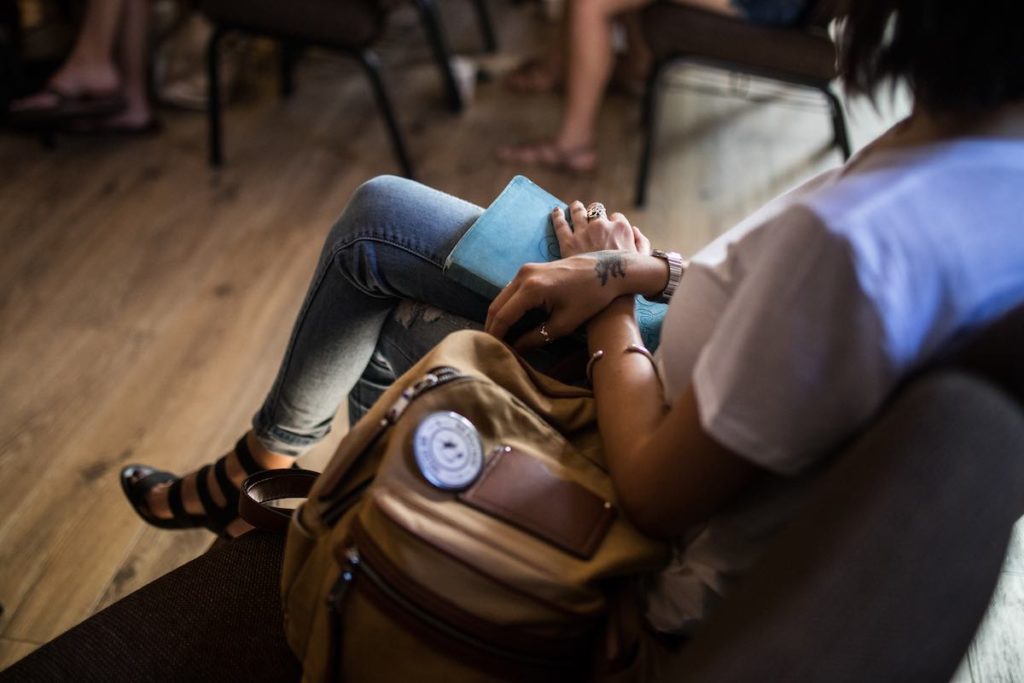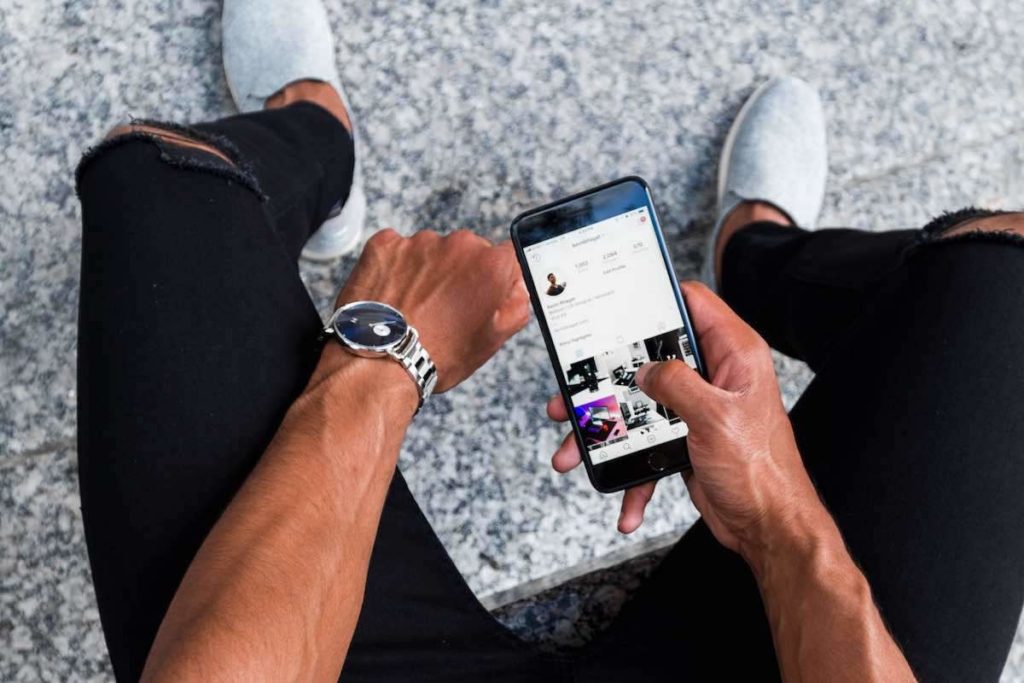Is Being Addicted to Love or the Honeymoon Phase Sabotaging You?
Do you fall in love too fast? Or maybe your relationships tend to break off after the honeymoon phase every one to two years. If this sounds familiar, then I have some news for you: You might be addicted to love.
Don’t believe me? Think about it this way: Not all addictions are to substances. Sometimes, we get addicted to behaviors, which includes love and relationships.
What’s addicting about relationships is the “honeymoon” phase. You know, that period in the beginning when everything’s new and you can’t stop thinking about the person? This can actually become such a rush that you will seek it out over and over — even if that means you have to dump your current partner and find someone else.
I personally find this fascinating. If I had ended my relationship with my current boyfriend because I needed to have that “high,” I would’ve merely repeated the same cycle over and over for the rest of my life, never realizing I’d lost my true love to an addiction to the highs of the honeymoon phase.
Thankfully, that didn’t happen. After all, love addiction is not genuine love — it’s “self-seeking dependency,” as experts put it. That means I would have settled for much less than my heart actually wanted.
If you think you may have an addictive personality, maybe that’s getting in the way of you being able to find and maintain a stable relationship. Read on to find out.
What Does It Mean to Be “Addicted to Love?”
Love addiction, as researchers define it, is related to other addictions like sex, gambling, and shopping, because it’s an addiction to a process. If you’re a love addict, you feel almost desperate to be around a certain person. Your passion for them has an obsessive quality. You feel intense pleasure when you’re with them and extremely unhappy when they’re gone.
What’s worse, your behavior becomes extreme, too. You want to be with the person just so you can calm your separation anxiety or experience the rush of happy feelings you get when they’re there. That makes you do things to get their attention that may compromise your safety and reputation, or even get you in legal trouble. Yep — being addicted to love is no joke.
Signs of Love Addiction
To figure out if you’re addicted to love, see if any of the following signs resonate with you. These are paraphrased from Sex and Love Addicts Anonymous (SLAA). Be sure to also check out their full list of love addiction characteristics.
- You sleep with women you barely know, just to have someone near you as often as possible. You might also use sex to control women, stringing them along to constantly feed your ego.
- When you’re in a bad relationship, you tend to stay in it way too long because you’re afraid to be alone.
- You often try to “rescue” women or expect them to rescue you.
- Your idea of a good partner or relationship is more like a fantasy. And once you’re with someone, you tend to look elsewhere quickly, because no one really measures up.
- In an attempt to recover, you’ve sworn off women or gone celibate. (Either you’re all-in and passionately addicted to someone, or you can’t be with anyone at all.)
- You attach yourself to women who are emotionally unavailable because you secretly love the chase.
- When you’re alone, you feel incomplete.
What Love Addiction Does in the Brain
The crazy thing about being addicted to love is that it’s actually physiological. When you’ve convinced yourself that you’re in love, research shows that your brain produces biochemical reactions involving feel-good chemicals such as dopamine, oxytocin, and serotonin. Not only that, but certain regions of the brain are activated, such as those associated with developing trust and experiencing pleasure and reward.
So when I say you may be addicted to love, I mean that quite literally. In fact, scientists have even compared these chemical reactions to what you’d experience from alcohol, heroin, or cocaine!
Not only is the high from “love” similar to drugs, but you can even experience withdrawal symptoms. Before you laugh, ask yourself: How did you feel the last time you had to stop seeing someone you were really into? According to PsychCentral, love withdrawal can give you insomnia, flu-like symptoms, and make you want to vomit. To get over these symptoms, experts recommend seeing a therapist and attending SLAA.
Roots of Love Addiction
As I mentioned earlier, being addicted to love isn’t about real love. As the folks on Love Addiction Treatment tell us, love addicts actually fear intimacy because that requires vulnerability — which they avoid like the plague. Love addicts can’t be vulnerable because they have low self-esteem.
So instead, they’d rather just seek out the “high” of being with someone new. When that fades, they look for it again and again. Love addicts feel that this “high” will compensate for their feelings of inadequacy, making them feel more worthy and validated. They almost have a fantasy that this person can make them feel completely happy and take away their emotional pain. The love addict may even obsessively fantasize about this “ideal lover” in detail while they’re still single.
When their partner doesn’t measure up, the love addict becomes extremely disappointed because they made themselves emotionally dependent on their partner. They will desperately cling to the person (or instantly find someone new) to avoid the feelings of worthlessness they feel when they are alone.
So how do love addicts become like this? They usually didn’t have healthy love modeled for them when they were growing up, and likely experienced childhood trauma.
The Effects of Childhood Trauma: My Story
When I was 9, my mom and stepdad moved me from Colorado to California. As a result, I was forced to leave my father and my aunt (who was like a mother to me).
Though I understood logically why my father and aunt never followed us to California, emotionally I internalized it as being the result of my own inadequacy. I felt abandoned because my family wasn’t there with me. I created a story in my mind to justify why they didn’t move with us; I must not have been good enough. That’s what I told myself to explain my own heartbreak. You see, I had no family in California and my mom wasn’t often emotionally available, so I felt pretty lonely growing up.
Losing someone you love, especially at an early age when you don’t understand the grown-up world, can lead to excessive fear of abandonment as an adult.
Feelings of abandonment can stem from emotional and physical neglect from a primary caregiver — perhaps when a parent leaves, passes away, has a chronic or terminal illness, or is absent (either emotionally or physically).
Like me, love addicts often grow up with the belief that something about them is not worth loving because they are deficient in some way. This tends to manifest in validation-seeking behaviors, especially from romantic partners.
Love addicts need to be constantly reassured that they are loved, cherished, and important. Desperate for approval, the addict achieves a temporary “high” when given recognition, which quickly wears off sending them into an addictive spiral for more.
Any threat to a relationship triggers the fear of abandonment, which frequently gives way to inappropriate social behaviors such as becoming clingy, manipulative, undesirous, or accepting of abuse. The love addict makes every attempt to protect themselves from abandonment, though as a result of their unhealthy behaviors, they often find themselves getting left again and having to experience the trauma once more. It is a vicious cycle. What can make it even worse is the type of partner they choose.
Love Addicts Tend to Seek Emotionally Unavailable Partners
When we experience trauma in childhood, we often try to resolve it by picking a romantic partner who’s just like our mom, dad, or another caregiver who raised us. That’s because deep down, we want to replay the same conflict from our childhood with our partner in order to resolve it emotionally.
In the case of a love addict with low self-esteem, they often need to resolve the feeling of neglect they felt as a kid. So that means they often choose partners who — you guessed it — neglect them! Love addicts tend to seek emotionally unavailable partners who don’t give them the love they need, just like Mom or Dad didn’t.
The sad part is, the emotionally unavailable partners simply reinforce the love addict’s feelings of abandonment and worsen their self-esteem. Shining a light on this pattern and getting help is the only way to get out of it.
Reframing the Fear of Worthlessness
If you think you may be a love addict, don’t worry. You’re in good company, and there are ways to turn things around. Here’s how to get your power back when you’re triggered into feeling worthless.
First, ask yourself the following questions and outline your answers. What is my belief around the fear? What exactly am I afraid of?
Here’s an example I created for myself during a particularly challenging COVID-19 trigger:
“I’m afraid that I will have to let go of the coaching program I’m in and that I will get so depressed that I can’t coach well. I’m worried my coach will think I’m not a woman of my word. I’m terrified I will lose everything after all of the hard work I’ve put in. I’m afraid I will slip into a deep depression that I won’t be able to get out of. I’m scared Tom won’t love me anymore. I’m afraid that I am not doing enough work and that I am not enough.”
Next, ask yourself this question: Do I believe it?
Here’s my example:
“No, this is not true. I am worthy whether I have $0 in the bank or a million. I am worthy when I am 15 pounds overweight and when I am 5 pounds underweight. I am worthy when I get Cs and D-s and even Fs… just the same as when I get A+s.
“I am worthy when I’m by myself, I’m worthy when I’m not. I’m worthy when I’m weird or when I get rejected, and I’m worthy when I’m popular and socially accepted. I’m worthy with or without my business. I am worthy with or without Tom. I am worthy when I get my mom’s Mother’s Day card mailed early and when I forget and am late.
“I am worthy when I drink and I’m worthy when I’m sober. I am worthy in good times and I am worthy in bad times. I am always worthy, without needing to do anything to gain that status. My worth cannot be lost…”
Now, you try.
Love Addiction Recovery Tips
Like many addictions, one of the best ways to confront being addicted to love is to identify what triggers you. In other words, when do you feel those feelings of inadequacy that make you chase someone?
For instance, think about when your urge to connect with a new romantic partner arises. Is it when you feel lonely, are going through a breakup with someone else, aren’t getting enough attention from your current partner, or feel rejected, perhaps? Incidentally, you can also use this strategy for other addictive tendencies.
Here’s an example of how I approached this so you can get an idea.
- My addictive urges: eating junk food, drinking alcohol, working too much.
- I have the urge to eat junk food when I’m scared and need to feel comforted (often a fear of financial failure or inadequacy).
- I want to bury myself in work when I’m bored, lonely, scared to fail, or feel inadequate.
- I feel like drinking when I’m celebrating or feel socially anxious, bored, sad, lonely, afraid, overwhelmed, rejected, worried, hopeless, powerless, angry. Also when it’s dinnertime, nighttime, or hot outside.
This process increases awareness, and it’s the first step. From here, you can begin to develop healthier avenues that support the vision you have for your life.
One way is to join a group of like-minded people. SLAA is an anonymous group dedicated to working through love addiction patterns using the 12-step model. I highly recommend you check them out if you think it could help.
You could also check out the book, Addiction to Love: Overcoming Obsession and Dependency in Relationships by Susan Peabody. In it, she breaks down why it’s so hard for love addicts to leave unfulfilling relationships and how to change the behavior of love addiction.
Addicted to Love: Wrap-Up
Phew! Congrats on making it this far.
I can certainly tell you, based on my experience with clients as well as my own life, it’s never easy looking at your addictions or other behaviors that stem from childhood pain. But when we do, a whole new world opens up. Suddenly, we realize that we don’t have to keep running on the same treadmill of bad relationships forever — because we alone are enough.
Of course, life is also full of paradox. As soon as you realize your true worthiness as a single person, you’ll be ready to share your life with someone else in a healthy way. And that’s where I come in.
Many men who are ready to turn their dating lives around have joined my 12-week group or private Signature coaching program to discover the fastest path to intimate, lasting love — and you deserve it, too! Join me for an intro call to get started.






Comments are closed for this article!